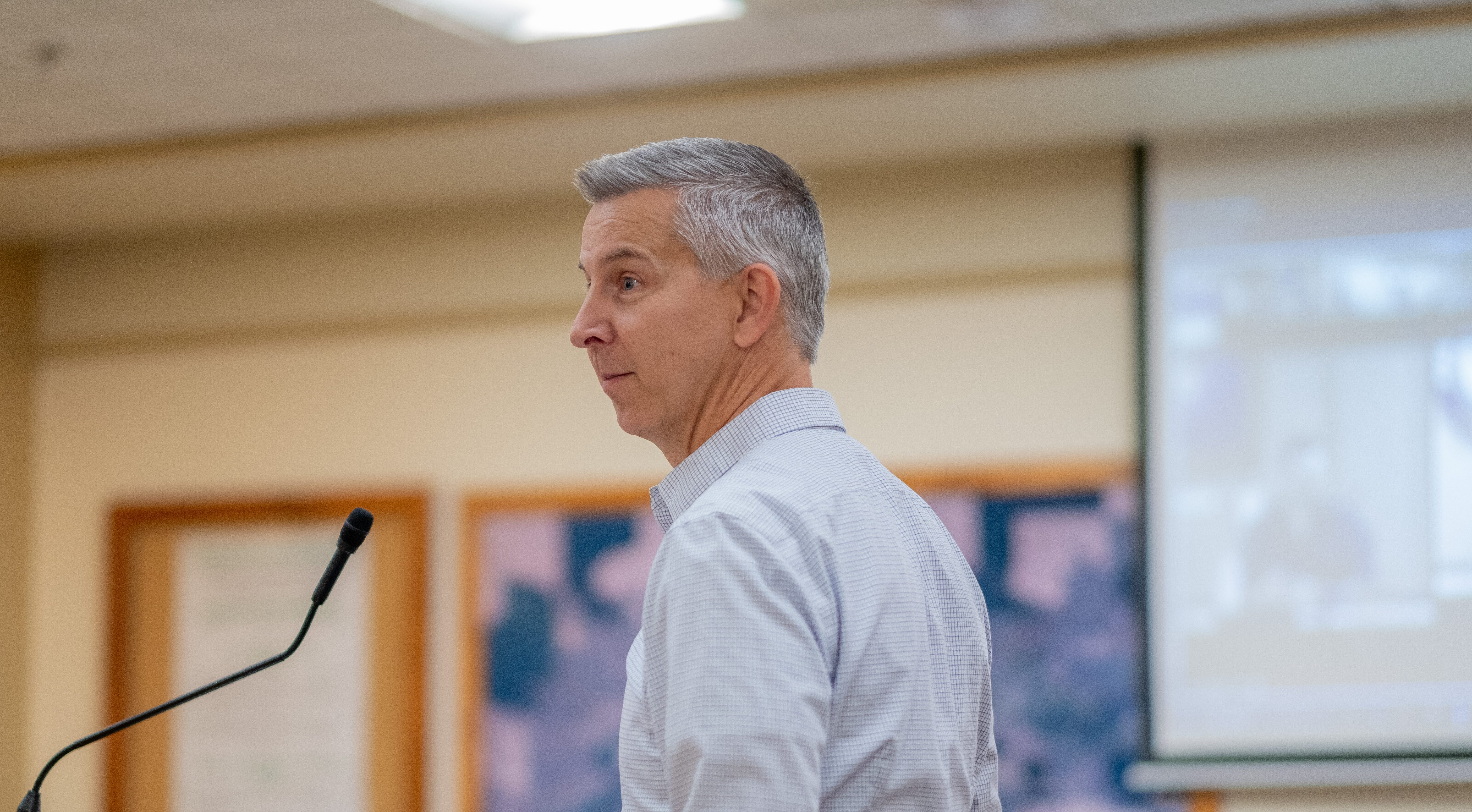Eastern Oregon legislators look back on session
Published 12:00 pm Friday, June 30, 2023

- Smith
LA GRANDE — Even though a six-week walkout by Oregon Senate Republicans grabbed headlines, regional lawmakers say the recently concluded legislative session also included big wins — and some losses — for Eastern Oregon residents.
Rep. Bobby Levy, R-Echo, saying she’s a “glass half-full” person, pointed to some of those wins, including House Bill 3086, which she said many groups across the state supported. Under the bill, the Oregon Fish and Wildlife Commission must include one member from each of the state’s five regional river basin management areas, one member from east of the Cascade Mountains and one member from west of the mountains.
Trending
Levy represents House District 58, which includes all of Union and Wallowa counties and a portion of Umatilla County.
The bill passed with bipartisan support, she said.
“It was the first time ever that I can recall that any federally recognized tribe has spoken out in favor of a bill, and six federally recognized tribes spoke out in favor of the bill, and that to me was a win-win,” she said.
Another win for Levy was Senate Bill 955 allocating $300,000 to allow Oregon to connect to the national AgriStress Helpline, which offers free, confidential and immediate support to workers in natural resource industries such as agriculture and logging who are facing stressful situations.
Also on her “win” list was Senate Bill 498, which increases an exclusion from the estate tax from its current $7.5 million to $15 million for natural resource property that is transferred to family members because of a person’s death.
“Senate Bill 498 will help small farmers and ranchers, fisheries and fishermen who bring us fresh fish, and small woodland owners. It will help keep them from losing their family inheritance,” Levy said.
Trending
While there were wins, she said there also were a few letdowns, and a couple of those involved House Bill 2002 and House Bill 2005, the two bills that in part prompted the six-week walkout by GOP senators.
HB 2002 protects abortions in the state as well as gender-affirming care, and it was amended to require parental consent for an abortion for minors younger than 15.
House Bill 2005 defines what an “undetectable firearm” is and establishes punishments for importing, transferring or selling those weapons. The original bill contained other provisions, but those were dropped in the negotiations that eventually led to the end of the walkout.
“I believe the senators negotiated in good faith HB 2002 and HB 2005,” Levy said, noting that provisions of both bills that GOP senators objected to were watered down or removed from the bills’ final versions. “However, 2005 did not fully fix what we all wanted for gun rights because we believe in the Second Amendment and our right to carry firearms to protect our families.” She added that she believes HB 2005 will not survive a court challenge.
Levy said she was disappointed with Wagner’s decision to “punish” the Republicans who participated in the walkout by refusing to excuse their absences.
“All senators should be forgiven for their absences,” she said. “I think it is wrong for anyone to accuse the senators (who participated in the walkout) of not wanting to do their jobs. The only major loss is that Sen. Wagner wouldn’t excuse their absences, which I believe is very damaging for him.”
Smith describes productive sessionRep. Greg Smith, R-Heppner, said was this the most productive session he has participated in. He represents the sprawling House District 57, which covers Gilliam, Morrow, Sherman and Wheeler counties and has portions of Umatilla, Clackamas, Jefferson, Marion and Wasco counties. He said he walked away with significant legislation, foremost the passage of HB 3235, a tax credit of $1,000-per-child for working parents.
“It’s the first time ever in Oregon that we’ve created a child tax credit,” he said. “That’s going to mean a lot for working families.”
Smith said he worked across the aisle to help deliver the bill, which aims to help families cover the rising cost of living. According to the Oregon Center for Public Policy, approximately 55,000 Oregon children are expected to benefit from this credit.
He also said he was pleased with how well capital spending came together, and his district is going to benefit.
Morrow County is getting more than $12.7 million for the construction of a new courthouse. Umatilla County is getting $100,000 for plans to build a new courthouse and $6 million was reauthorized for the Ordnance Regional Water Infrastructure Project, and $5 million is going to Umatilla Electric Cooperative for industrial development in Morrow and Umatilla counties.
Hansell reflects on sessionSen. Bill Hansell, R-Athena, was one of the senators who participated in the boycott, which blocked the Senate from acquiring the two-third quorum required for it to do business. He said the 2023 legislative session could have avoided a walkout altogether and pointed to a change in Senate leadership as one of the factors that led to it. (Rob Wagner, a Democratic senator from Lake Oswego, assumed the Senate presidency after the retirement of Peter Courtney.)
“I would have preferred that we got where we did without having to deny the quorum,” Hansell said. “I would have preferred to sit down sooner to negotiate…. At the end of the day, in negotiations, you never get everything you want. Neither side does. If both sides are not overly happy, you probably got a pretty good deal. That is the art of negotiation.”
Hansell represents Senate District 29 encompassing Wallowa, Union, Umatilla, Morrow, Gilliam, Wasco (except The Dalles), Sherman, Wheeler and northern Jefferson counties. It covers an area greater than the state of Maryland.
Another new wrinkle in this year’s session, Hansell said, was Measure 113, a ballot measure Oregon voters passed in 2022. The measure bars lawmakers with 10 unexcused absences from seeking reelection and was intended to prevent walkouts. Republican lawmakers have said they plan to challenge the measure in court.
But Measure 113 didn’t prevent the walkout in this year’s session, and Hansell pointed to measures such as HB 2002 and 2005 as forcing the hands of Republicans.
The Democratic strategy on those bills, he said, “was to not negotiate, and the goal was to just push them through.”
Another factor, he said, was the discovery that lawmakers were not following a statute from 1979 mandating that bills be readable, “so that became a part of the mix as well. All of those things came together” to result in the boycott.
Despite the walkout, Hansell said the session had wins for Eastern Oregon residents, and he pointed to the AgriStress bill as one example.
“Ranchers and farmers (are) a proud group that does not like to ask for help in an environment where there are a lot of pressures, so they have one of the highest suicide rates of any profession,” he said. “They just don’t reach out for help, so the AgriStress program, which is very important to Eastern Oregon, passed.”
And the estate tax bill, SB 498, was another winner, he said.
“We were able to raise the inheritance tax exemption, so for fishing, farming, and ranching families … that will be a huge help,” Hansell said.
— East Oregonian managing editor Phil Wright contributed to this report.









